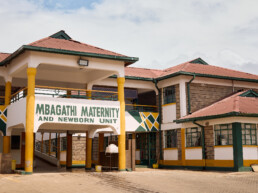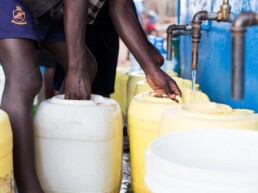Key Metrics
53
water kiosks
40k
people accessing safe water daily
5,350
teenage girls benefit from menstrual hygiene and sanitary pads each month
Impact
Through our WASH program, we have dramatically improved access to clean water and sanitation in Kenya’s informal settlements. By strengthening local water systems and engaging the community in maintenance and governance, we have significantly reduced the incidence of waterborne diseases.
Our aerial piping system now delivers millions of liters of clean water annually to thousands of residents, while our sanitation initiatives have provided safe and dignified facilities for those most in need.
This approach not only improves public health but also empowers communities to sustain these vital services.
Situation
In Kenya’s informal settlements, most households lack access to clean water, leading to high rates of diarrheal diseases – a major cause of death for children under five. In the absence of an organized network of water access points, residents depend on cartels that illegally tap pipes and sell water at inflated prices.
Residents of informal settlements spend up to 20% of their income on water, which is five to ten times more than residents in other areas of Kenya.
Strategies
With over a decade of experience in providing WASH services in Kibera, Kenya’s largest informal settlement, we began our journey with a single borehole that offered clean, affordable water. Thanks to the support of our partners, we have since expanded our water infrastructure to reach some of Kenya’s most vulnerable communities, including Mshomoroni, Maweni, and Bangladesh, an informal settlement in Mombasa. Today, we are focused on five key strategies:
- We operate an innovative, first-of-its-kind aerial piping distribution system, coupled with a solar-powered water purification system, ensuring affordable access to clean water.
- We safeguard women, who are often responsible for collecting household water and face risks of sexual and gender-based violence (SGBV) at unsafe water points and exploitative practices like transactional sex, by establishing women-led water kiosks that offer safe, affordable access to water at a price 60% lower than private vendors.
- We promote sanitation and hygiene education in schools and communities through our health clubs, with a focus on menstrual hygiene and safe water usage.
- Through the SHOFCO Water and Sewerage Company, we are expanding our water services to reach new underserved populations living in informal settlements, in partnership with local government institutions.
- We enhance flood resilience by planting trees to improve soil stability and by supporting communities in installing water pans to capture rainwater for agriculture and water supply.
- We implement sustainable energy solutions such as biogas facilities for renewable energy and solar power installations across key SHOFCO facilities, promoting environmental sustainability and energy independence.
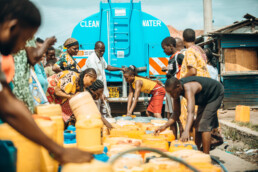
Outcomes
- Access to clean water is made affordable, safe, and reliable, significantly reducing waterborne diseases.
- Women and girls are protected from SGBV through safer water collection methods and improved sanitation facilities.
- Schools and communities embrace enhanced hygiene education, promoting better health practices and reducing risks.
- Public health and dignity are restored in informal settlements through sustainable water and sanitation solutions.
What the Future Holds
We are focused on providing safe, affordable water, and sanitation services, including the distribution of sanitary pads, and behavior change communication across primary and secondary schools.
Key People
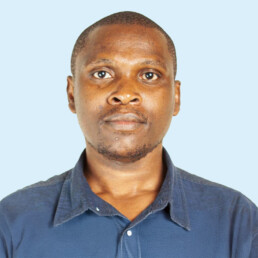
Felix Nyauma Mosoti
WASH Manager

